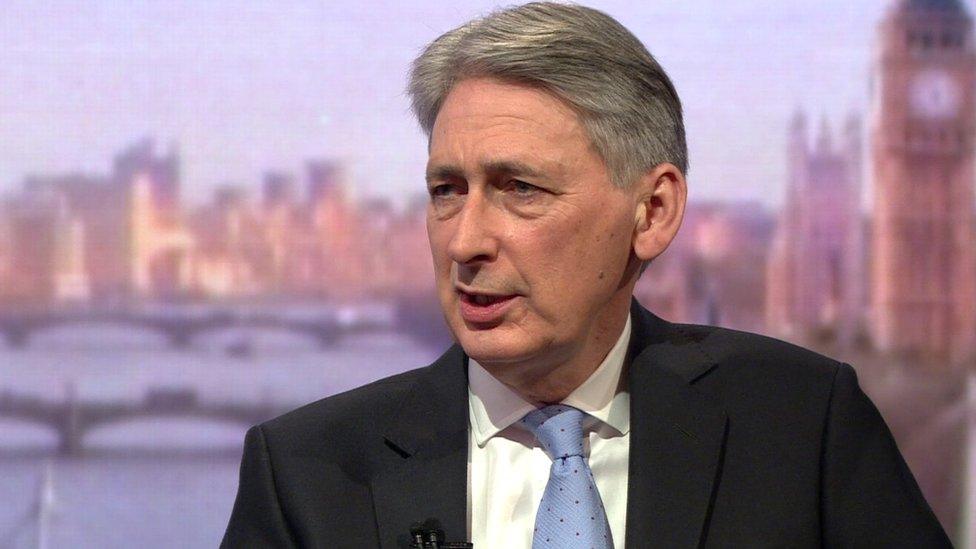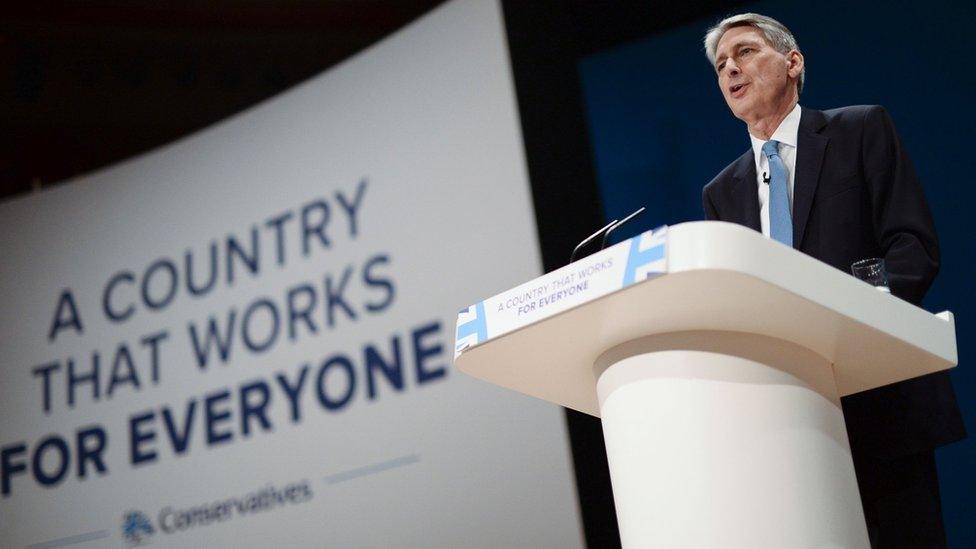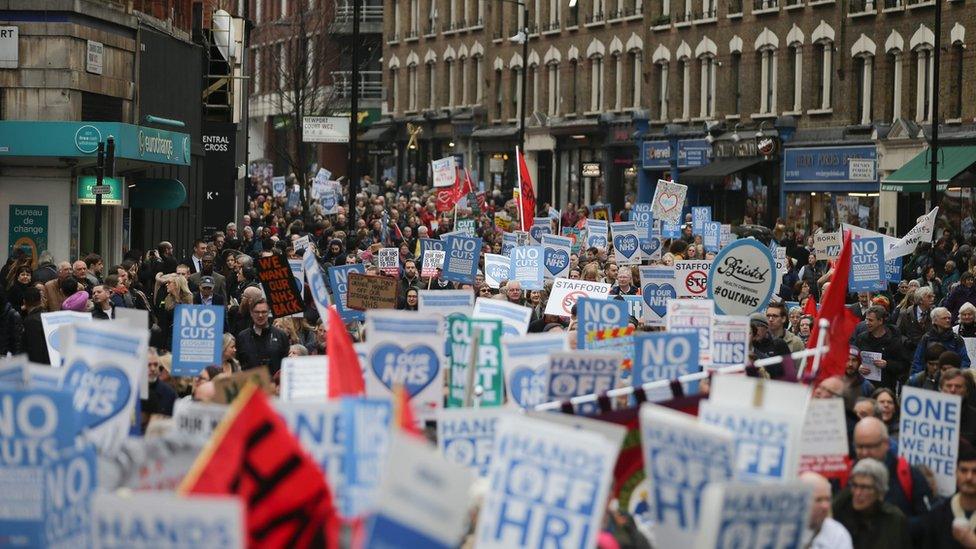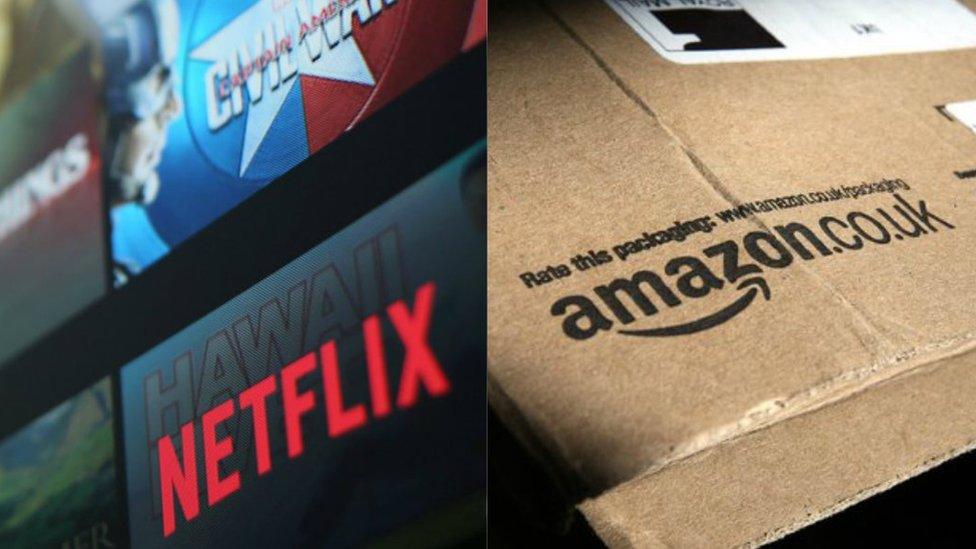Budget 2017: No 'spending sprees', Hammond warns
- Published

There will be no "spending sprees" in Wednesday's Budget, Chancellor Philip Hammond has warned.
Mr Hammond said any surplus cash would be used to ensure the UK had enough "gas in the tank" for the coming years.
He also acknowledged social care budgets were under particular pressure but said this was "not just about money".
Labour said the government was putting money aside to prepare for Brexit which should instead be spent on the NHS.
Speaking to the BBC's Andrew Marr Show after ruling out "huge spending sprees" in a Sunday Times article ahead of his first Budget, Mr Hammond said:
Better than expected economic figures did not represent "money in a pot" due to the UK's "huge" borrowing levels
A reported £60bn Brexit bill was "a piece of negotiating strategy" from Brussels but that the UK "abides by its international obligations"
The UK will "fight back" and not "slink off like a wounded animal" if a Brexit deal cannot be reached
He had "no intention" of publishing his tax return, criticising "demonstration politics"


The government has been under pressure to provide more money for the NHS and social care.
On Saturday tens of thousands of people marched in London to protest against "yet more austerity" in the health service.
Mr Hammond said the economy was "performing extremely well" but that spending reductions were putting pressure on services.
This was particularly the case with adult social care, he said, but added that some councils were performing "extremely well" while others were struggling.
The chancellor did say there was a case for taking a long-term, strategic view on how the costs of an ageing population can be met, but said that in the short term: "This is about good practice as well as budgets."
Writing in the Sunday Times, external, he said that calls for "massive borrowing to fund huge spending sprees" were "reckless, unsustainable and unfair on our young people who would be left to deal with the consequences".
Public sector net debt - not including public sector banks - was £1.68tn at the end of January 2017, equivalent to 85.3% of GDP, according to the Office for National Statistics, external.
It has increased by £91.7bn since January 2016, the ONS said.
Mr Hammond last year abandoned the timetable of his predecessor, George Osborne, to eliminate the deficit by 2020, instead pledging to invest in homes and transport.
Also on the Marr show was Labour shadow chancellor John McDonnell, who said the National Living Wage should be increased to give workers a "pay rise".
He said this, along with reversing changes to disability benefits and a cash injection for the NHS, could be funded by reversing £70bn in corporation, capital gains and inheritance tax cuts.
He also said Labour wanted to abolish university tuition fees and was looking at how this could be afforded.
Meanwhile Rebecca Long-Bailey, the shadow business secretary, suggested people might support paying more tax to support the NHS.
"People are so proud of their NHS and social care system that I don't think many people would argue with paying an extra pound or however much to ensure we actually have an NHS," she told Pienaar's Politics on BBC Radio Five live.
Wednesday's Budget takes place after the Bank of England revised up its growth forecast for this year.
Paul Johnson, director of the Institute for Fiscal Studies think tank, predicted the Office for Budget Responsibility would also revise its 2017 forecast upwards.
He said that with "an awful lot of uncertainty" in the years ahead, Mr Hammond was trying to create "headroom" to avoid extra spending cuts and tax rises to cope with any problems that arise.
He added: "However good the numbers look in a couple of days' time, we are still going to be borrowing at least £20bn more by 2020 than we were forecasting a year ago."
- Published3 October 2016

- Published4 March 2017

- Published4 March 2017
